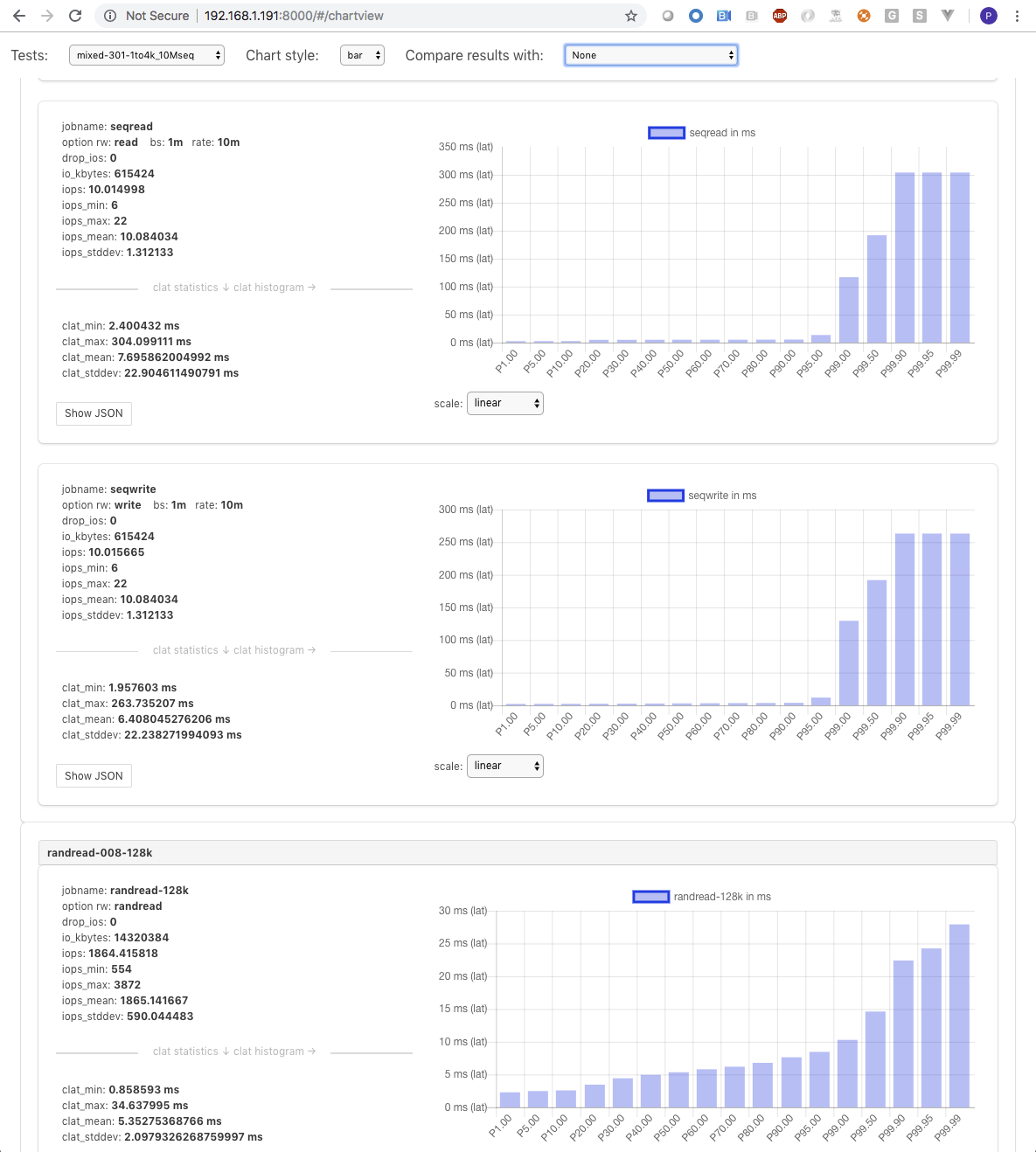scripts to quickly measure system baseline IO performance
This is meant to be a quick way to get some comparable performance numbers from a system. The goal is to be able to clone the repo and do minimal configuration before getting results. As well, the set of tests will be chosen to be useful for a round assessment of systems, but simple enough to allow for side-by-side comparison with results from different systems.
- fio (could be in the Linux repository as well)
- Tested with fio 3.1 installed on CentOS 7.4:
yum install fio - The UI will not work with fio 2.x JSON output
- Tested with fio 3.1 installed on CentOS 7.4:
bin/run-fio-tests [-c config_dir] [-n] [-u] -r results_dir -d data_dir [number_cycles]
Parameters are:
-r(required) - full path to directory where results will be stored;-d(required) - full path to directory where tests will be executed;-c(optional) - path to directory with configuration files (./conf/by default);-n(optional) - output results in "normal", human-readable format;-u(optional) - don't perform tests, but upgrade the existing results with UI improvements. Requires-rparamater.
The full test battery will run 53 full-speed microbenchmarks, with IO workloads simulating various levels of streaming reads, writes, random reads, and combinations of these.
Each test is also coded with a test id, to make cross-comparisons and discussion easier.
To run all of the tests:
bin/run-fio-tests -r /path/to/results_dir -d /path/to/data_dir 53
In addition of the raw results, you can open up index.html in a browser to see charts of all of the tests that were run.
If the tests were run on a remote machine you can run:
cd /path/to/results_dir
python -m SimpleHTTPServer
Serving HTTP on 0.0.0.0 port 8000 ...
demo results: http://fiovis.site44.com
If you want to run an partial set of tests, you can use the syntax
bin/run-fio-tests -r /path/to/results_dir -d /path/to/data_dir 10
This will run the most basic tests first, filling in gaps in the results as the tests continue. Details on the test order are in test_order.lst
